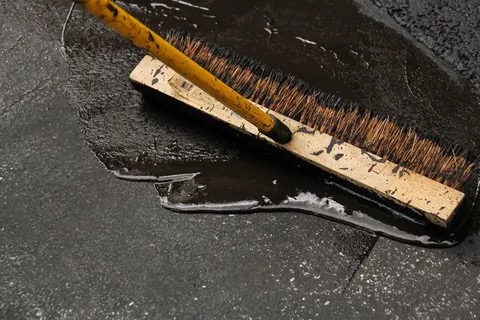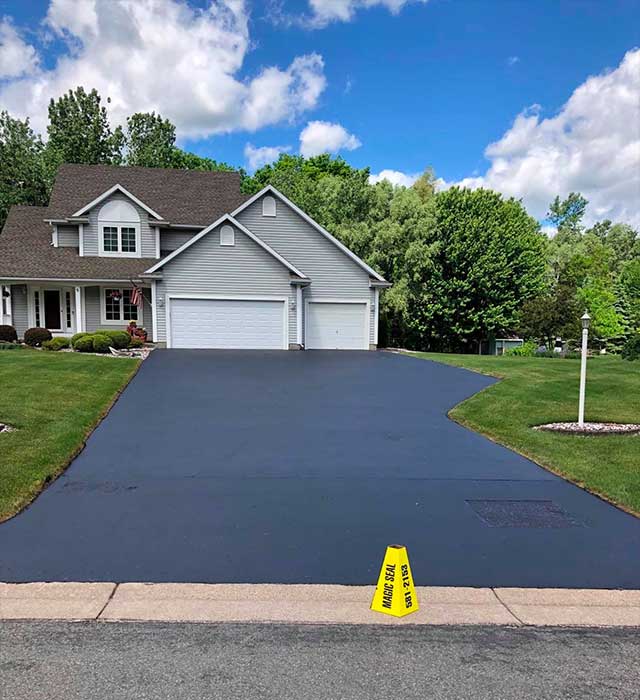Warm Mix Asphalt: A Sustainable Solution for Pavement
Warm Mix Asphalt (HMA) has arised as a leading sustainable choice for pavement solutions, providing a myriad of cutting-edge innovations and ecological advantages. As the need for environment-friendly building and construction techniques grows, exploring the nuances of HMA's sustainability can give valuable understandings into the future of pavement options.
Environmental Benefits of Hot Mix Asphalt

In Addition, Hot Mix Asphalt assists to alleviate metropolitan warm island effects. Its dark color takes in sunlight, lowering the amount of warmth mirrored back into the ambience compared to lighter-colored pavements. This can lower ambient temperature levels in city locations, reducing the need for a/c and inevitably reducing power consumption.
Furthermore, Warm Mix Asphalt adds to enhanced stormwater administration. Its permeable nature permits water to charge and infiltrate the pavement groundwater materials, lowering overflow and the risk of flooding. These environmental benefits make Hot Mix Asphalt a lasting option for paving roads and freeways.
Energy Effectiveness in HMA Manufacturing
Is energy effectiveness an important variable in the production of Warm Mix Asphalt (HMA)? Power plays a significant role in the production of HMA, impacting both expense and ecological sustainability. One vital facet of energy performance in HMA production is the usage of warm mix asphalt (WMA) modern technologies.
Furthermore, improvements in plant modern technologies have actually brought about more energy-efficient HMA manufacturing processes. Modern plants are designed with features like recycled asphalt sidewalk (RAP) handling capacities, efficient burner systems, and boosted insulation, all adding to power savings. By enhancing energy use in HMA production, the industry can minimize its carbon impact while maintaining premium pavement materials. Power effectiveness is, as a result, a critical factor to consider in guaranteeing the sustainability of Hot Mix Asphalt production.
Recyclability of Warm Mix Asphalt
The recyclability of Warm Mix Asphalt (HMA) is a pivotal element of its sustainability and long-term ecological effect. HMA is among the most recycled products in the United States, with over 100 million loads of recovered asphalt sidewalk (RAP) being recycled yearly in new pavement construction. Recycling HMA provides numerous ecological advantages, such as lowering the requirement for virgin products, lowering power intake during production, and reducing the quantity of waste sent to landfills.
The process of recycling HMA entails grating the existing sidewalk, crushing it right into smaller pieces, and mixing it check my site with new aggregate and asphalt binder to her response create a recycled mix. Generally, the recyclability of HMA plays a considerable function in advertising sustainable practices within the pavement sector.

Long-Term Performance of HMA
Asphalt pavements demonstrate longevity and resilience over an extended period, mirroring the lasting performance of Warm Mix Asphalt (HMA) Furthermore, innovations in HMA technology, such as the use of polymer-modified binders and cozy mix asphalt, have actually even more boosted the sturdiness and long life of HMA pavements. By focusing on quality construction and upkeep techniques, HMA continues to show itself as a economical and sustainable service for resilient sidewalk framework.

HMA: Durability and Sustainability
Demonstrating both sturdiness and sustainability, Hot Mix Asphalt (HMA) has come to be a cornerstone in the building of resilient pavement infrastructures - regrading. HMA's durability originates from its capability to stand up to hefty lots, harsh climate condition, and high web traffic volumes, making it a reliable selection for highways, freeways, and airport terminal paths. The composition of HMA, which commonly consists of accumulations, binder, and filler, plays an essential duty in enhancing its durability and resistance to put on and tear
Additionally, HMA's sustainability hinges on its recyclability and energy-efficient production procedure. The capability to reuse reclaimed asphalt pavement (RAP) in brand-new HMA blends decreases the need for virgin materials and minimizes the environmental effect of pavement building and construction and maintenance. Additionally, the power effectiveness of producing HMA hinges on its reduced mixing temperature levels compared to various other pavement materials, bring about minimized power consumption and greenhouse gas discharges.
Verdict
In verdict, hot mix asphalt (HMA) supplies a sustainable service for sidewalk with its environmentally pleasant attributes. HMA's recyclability, energy efficiency in production, and lasting longevity make it an environment-friendly choice for road building and construction.
HMA is one of the most recycled products in the United States, with over 100 million loads of reclaimed asphalt sidewalk (RAP) being reused yearly in new pavement building and construction.The process these details of recycling HMA involves grating the existing sidewalk, crushing it right into smaller pieces, and blending it with brand-new aggregate and asphalt binder to produce a recycled mix.Asphalt sidewalks show longevity and durability over an extended duration, mirroring the long-lasting performance of Hot Mix Asphalt (HMA) Furthermore, improvements in HMA modern technology, such as the use of polymer-modified binders and warm mix asphalt, have actually better enhanced the toughness and longevity of HMA pavements. The capability to recycle recovered asphalt sidewalk (RAP) in new HMA mixtures lowers the need for virgin materials and decreases the ecological impact of pavement building and construction and upkeep.